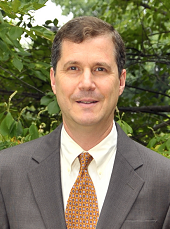ENCE 723 Project Decision Making with Competing Objectives
AMSC 698s Multi-Objective Optimization
Course Syllabus
Course Description
In many engineering and applied mathematics settings, one needs to compute a solution to a problem with more than one objective. The traditional optimization model in these settings is not sufficient to accurately depict the problem at hand. Examples include: maximizing an organization's profit while also maximizing reliability and minimizing environmental pollution, or minimizing both time and cost on a project at the same time.
This course is an introduction to the theory and algorithms behind optimization under such competing objectives, also called "multiobjective optimization". In this course, we explore the concepts of dominated solutions, Pareto optimal or "efficient" solutions, as well as several approaches to finding such points. We develop the theory for general nonlinear multiobjective optimization problems but concentrate the majority of effort on the linear case for the algorithms. In addition, we consider other multi-objective type models such as goal programming to solve problems with competing objectives.
Instructor
Dr. Steven A. Gabriel
Project Management Program, Dept. of Civil & Environmental Engineering and
Applied Math & Scientific Computation Program
Contact information
1143 Martin Hall
University of Maryland, College Park, MD 20742
tel. 301.405.3242, fax 301.405.2585
sgabriel@umd.edu, www.eng.umd.edu/~sgabriel
Course Location and Time
Mondays 3-5pm, EGR 1156
Office Hours:
Wednesdays 9-11am or by appointment
Course Prerequisites
- A course in optimization such as: linear programming, nonlinear programming, etc.
- Mathematics courses including: multi-variable Calculus, linear algebra
- Some exposure to optimization software (LINDO, Matlab, MINOS, etc.)
Text(s)
Required course text:
- "Multiple Criteria Optimization: Theory, Computation, and Application," Ralph E. Steuer, John Wiley & Sons, 1986. (The Engineering copy center has made copies of this book and they can purchased from there).
Highly Recommended additional course text:
- "Multiobjective Programming and Planning," Jared L. Cohon, Academic Press, 1978, reprint available at the bookstore
Additional references (not required):
- "Nonlinear Multiobjective Optimization," Kaisa M. Miettinen, Kluwer Academic Press, 1999.
- "Operations Research Applications and Algorithms," Wayne L. Winston, Duxbury Press, 1994.
Course Objective
Provide an introduction to the concepts behind multi-objective optimization with application to problems in project management and other areas of engineering.
Grading
The overall course grade will be derived from three areas:
- Class participation and homeworks 25%
- Min{In-Class Exam #1 Score, In-Class Exam #2 Score}=20%
- Max{In-Class Exam #1 Score, In-Class Exam #2 Score}=30%
- Project 25%
Course Policies
Students are encouraged to attend all lectures since the exam and the homeworks will be closely related to material discussed in lectures. In addition, class participation including presentation of homework solutions will count for 20% of the overall grade.
It is assumed that students will complete the homeworks by themselves although casual discussion with other class members is allowed. Homeworks will be given out roughly each week (or every other week) and due at the start of class one week later. Each week that homework is due, students will be randomly selected to present their solutions in the class. Everyone will have several chances to present homework solutions throughout the term.
The course is subject to the Code of Academic Integrity available on the web at http://www.inform.umd.edu/CampusInfo/Departments/jpo/code_acinteg.html. The Code prohibits students from cheating on exams, plagiarizing papers, submitting the same paper for credit in two courses without authorization, buying papers, submitting fraudulent documents, and forging signatures.
The University has a legal obligation to provide appropriate accommodations for students with disabilities. Please inform Dr. Gabriel of any accommodations needed relative to disabilities. Also, University of Maryland policy states that students should not be penalized due to observances of their religious beliefs. Please inform Dr. Gabriel of such instances well in advance so that appropriate steps can be taken.
Short Bio on Dr. Gabriel
Academic Experience: Besides teaching at University of Maryland, Dr. Gabriel has held appointments in the Mathematical Sciences Department at The Johns Hopkins University, and in the Engineering Management and Systems Engineering Department at The George Washington University. In addition, he has served as a postdoctoral researcher in the Mathematics and Computer Science Division at Argonne National Laboratory.
Industry Experience: Dr. Gabriel has over 15 years of industry experience involving mathematical modeling of engineering-economic systems with applications in energy, transportation, service performance, and operations management. His specialties include optimization/equilibrium modeling, econometrics, decision support systems, and software development. His most recent industry experience includes 5 years as a Project Manager at ICF Consulting (http://www.icfconsulting.com/) involving projects with their oil and gas group (http://www.icf-oilandgas.com/) as well as their electrical power group.
![]()
ENCE723 home | Syllabus | Schedule & Homeworks | Projects | Downloads & Links
